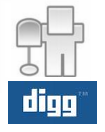Vishnu Kaimal
US Diplomacy and its policy towards its neighbours has been questioned in light of the new WikiLeaks release. True to its words the whistle blowing website released a trove of classified documents that don’t exactly paint a pretty picture of the US and its strategic and diplomatic methods.
Of the quarter million top secret U.S. documents released by WikiLeaks, as many as 3,038 classified cables are from the U.S. Embassy in New Delhi. Ahead of the release of these documents, the State Department had reached out to India warning it about the impending release.
The US government says by putting in public domain about 250,000 documents, nearly half of them classified and secret, Wikileaks is putting at risk lives of innocent individuals, endangering ongoing military and counterterrorism operations and jeopardizing ties between countries who are allies and stakeholders in confronting common challenges. However the efforts of the US to stifle the release and taint the credibility of these documents seems to stem more out of protecting its own interests rather than the interests of its allies or innocent civilians.
Wikileaks says the release “reveals the contradictions between the US’s public persona and what it says behind closed doors — and shows that if citizens in a democracy want their governments to reflect their wishes, they should ask to see what’s going on behind the scenes.” The cables, Wikileaks maintains, “show the extent of US spying on its allies and the UN; turning a blind eye to corruption and human rights abuse in “client states”and measures US diplomats take to advance those who have access to them.”
The documents reveal the US’s true power play tactics. The documents are being published by several media outlets across the globe today, despite repeated insistence from the U.S. that it may put at risk many lives. While the only life that may be in danger in light of the release of these documents is that of Julian Assange, the controversial founder of WikiLeaks.
The United States has termed it as illegal and has said that these would affect its relationship with its friends and allies.
The details of these cables related to India were not immediately available mainly because of inaccessibility to the WikiLeaks website, which was experiencing heavy traffic.
But out of the total, 3,038 classified cables are from the U.S. Embassy in New Delhi.
These cables are often candid and some time personal assessment of the day to day events, functioning and meetings of U.S. diplomats.
Many are unclassified, and none are marked “top secret,” the government’s most secure communications status.
But some 11,000 are classified “secret,” 9,000 are labelled “noforn,” shorthand for material considered too delicate to be shared with any foreign government, and 4,000 are designated both secret and “noforn.”
The cables published on Sunday reveal how the U.S. uses its embassies as part of a global espionage network, with diplomats tasked to obtain not just information from the people they meet, but personal details, such as frequent flyer numbers, credit card details and even DNA material.
Classified “human intelligence directives” issued in the name of Hillary Clinton or her predecessor, Condoleeza Rice, instruct officials to gather information on military installations, weapons markings, vehicle details of political leaders as well as iris scans, fingerprints and DNA.
The most controversial target was the leadership of the United Nations. That directive requested the specification of telecoms and IT systems used by top U.N. officials and their staff and details of “private VIP networks used for official communication, to include upgrades, security measures, passwords, personal encryption keys.”
Friday, December 3, 2010
//
Labels:
Democracy,
Encryption,
Hilary Clinton,
India,
New Delhi,
Wikileaks
//
0
comments
//
0 comments to "US: WikiLeaks put lives in danger"
About This Blog
yahoo Pipes
About Me
Followers
Categories
- Afghanistan (2)
- Ballistic (1)
- Democracy (1)
- Encryption (1)
- Grenade Launchers (1)
- Hilary Clinton (1)
- India (1)
- Iraq (1)
- New Delhi (1)
- Politics (1)
- Taliban (1)
- The Pentagon (1)
- US (1)
- Wikileaks (2)
Shared in Google Reader














Post a Comment